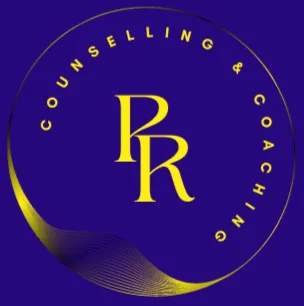By Brent Hayter, RCC, CCC, MACP,B.Ed. B.Kin. – PR Counselling and Coaching

Why You Take Things Personally—And How to Stop
Why You Take Things Personally—And How to Stop
The Emotional Landmine You Didn’t Know You Were Walking On
Ever had a moment where someone’s tone, glance, or silence hit you like a punch in the gut?
Your body tenses, your chest tightens, and suddenly, you're spiraling—replaying the
moment, analyzing every word, wondering what you did wrong.
This isn’t about being too sensitive. It’s about your brain doing exactly what it was designed
to do: protect you.
The problem is… it often misreads the threat.
Your Brain: A Loyal Protector with Faulty Wiring
Deep in your brain is a built-in alarm system that evolved to keep you alive. When it senses
danger—whether it’s a charging bear or a raised eyebrow—it flips into survival mode: fight,
flight, or freeze.
The trouble is, that system doesn’t know the difference between a physical threat and a
social one. It doesn’t ask, “Is this personal?” It just says, “Protect!”
So when your partner seems distant, or a co-worker makes a joke at your expense, your
body reacts. Heart rate up. Muscles tense. Thoughts race. You feel rejected, attacked, or
disrespected—even if that wasn’t the intention at all.
What Happens When You Take Everything Personally
You start living in defense mode.
Every conversation feels like a test. Every interaction becomes a risk. You overthink, shut
down, lash out—or all three.
And the cost? Disconnection, resentment, and a version of yourself that’s constantly on
edge.
But here’s the truth: most things aren’t about you. People are dealing with their own stress,
insecurities, and blind spots. What feels like an insult might just be someone else’s bad day.
So How Do You Stop the Spiral?
You don’t need to become emotionless. You just need to get better at pausing before you
react.
Here are two powerful tools that help you take things less personally and respond with
more clarity and strength:
1. Ask: “What else might be going on?”
When something hits you hard, pause and ask:
- “Is there another way to see this?”
- “Could this be about them, not me?”
- “Would I feel the same way if I wasn’t tired or stressed?”
Your first reaction is usually based on instinct, not insight. Asking better questions helps
you see a fuller picture—not just the one your emotions are painting.
2. Interrupt the Mental Spiral
When your thoughts start looping (“Why did he say that?” “What did she mean by that?”),
do this:
- Picture a STOP sign in your mind.
- Say “stop” to yourself.
- Replace the thought with something more useful, like: “I don’t need to know their motives.
I get to choose how I respond.”
This breaks the automatic loop and keeps you in control.
Emotional Strength Means Owning Your Response
There’s real power in being the kind of man who doesn’t jump to conclusions, who doesn’t
react to every mood in the room, and who doesn’t hand over his emotional state to others.
So the next time you feel that hit—pause, breathe, and remember:
“Not everything is about me. But how I choose to show up? That’s mine to own.”
That’s emotional maturity. That’s resilience. That’s strength.
Want Tools Like This?
Subscribe to my newsletter or book a Mental Skills Coaching session to start building your
emotional foundation. Because strength isn’t just physical—it’s mental.
This site is not a part of the Facebook website or Facebook Inc. Additionally, This site is NOT endorsed by Facebook in any way. FACEBOOK is a trademark of FACEBOOK, Inc. DISCLAIMER: The sales figures stated above are my personal sales figures. The average person who buys any “how to” information gets little to no results. I’m using these references for example purposes only. Your results will vary and depend on many factors …including but not limited to your background, experience, and work ethic. All business entails risk as well as massive and consistent effort and action. If you're not willing to accept that, please DO NOT GET OUR INFORMATION.
Copyright 2026® - Brent Hayter
